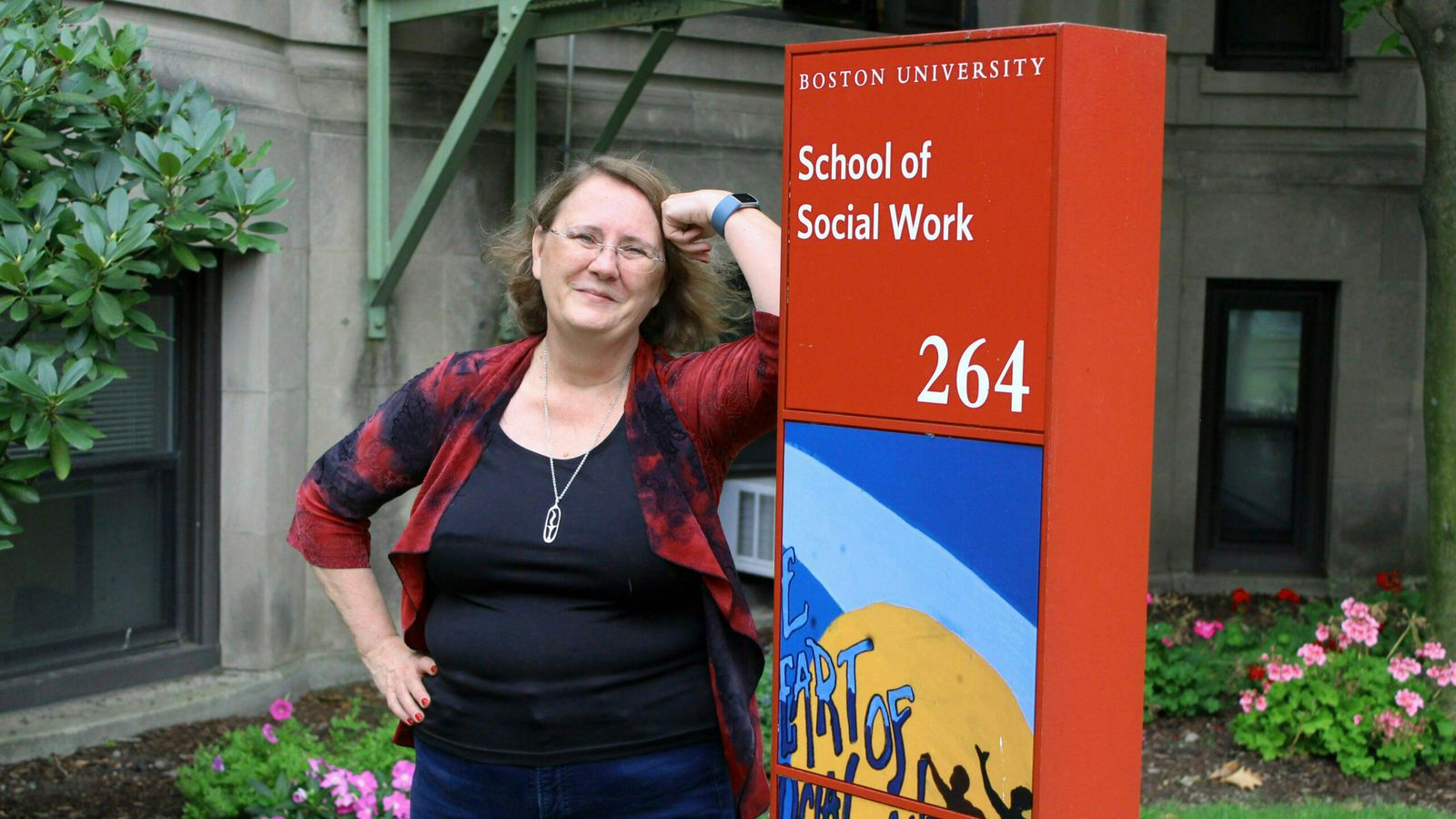Lecturer Michelle Walsh Retires From BUSSW

Rev. Michelle Walsh, LICSW, PhD, will retire from her role as lecturer at Boston University School of Social Work (BUSSW) in August, 2022, after teaching at the school for thirteen years.
A clinical social worker, scholar and ordained Unitarian Universalist minister, Walsh’s background is in spirituality, trauma, and lived religion. Her work as an educator – which included teaching master’s-level courses on ethics, human behavior, racial justice and cultural oppression, and spirituality and social work – was backed by thirty years of experience in urban ministry and clinical services. Walsh has directed two mental health clinics, founded an urban youth ministry program that she ran for seventeen years, and made novel scholarly and theoretical contributions to the fields of social work and theology. She also has worked as a clinical social work practitioner, forensic sexual abuse evaluator, supervisor, trainer, and pastoral psychotherapist and spiritual director.
As a scholar, Walsh’s best-known works include the article “Religiosity Scales: What are We Measuring in Whom?” co-authored with Marsha Cutting in 2008 and published in the international peer-reviewed journal Archive for the Psychology of Religion, and the 2017 book Violent Trauma, Culture, and Power: An Interdisciplinary Exploration in Lived Religion. The book, a study of trauma-response ministries in the aftermath of violence, was based on Walsh’s doctoral dissertation at BU’s School of Theology and was selected by the Amsterdam Centre for the Study of Religion to be the first in a series on lived religion and societal challenges.
Walsh also contributed to the study of trauma by exploring connections with language, psychological theories, and interdisciplinary schools of thought, such as theopoetics, and by participating in what she calls the “intellectual zeitgeist” around the idea of world/sense (the way in which one’s identities shape their “felt sense” of their world). The term has contributed to discussions around trauma, including disability, and to lived religion methodology.
In addition to her work in academia, Walsh is an engaged civic activist at the community level. A regular participant in rallies and marches for social and environmental justice, Walsh has served as clergy, marshal, and street medic, and her dedication has resulted in three nonviolent civil disobedience arrests. She also served as a Boston University union steward for several years and served as a co-chair for a jointly appointed labor-management Distinguished Service Award Committee for the lecturers’ union.
Walsh’s social justice values also have led her to make numerous pedagogical contributions at BUSSW. She was instrumental in incorporating cultural power analysis as a tool across the school’s MSW coursework, particularly in ethics and racial justice, and she was responsible for revising the HB 744 course in spirituality and social work using a social justice framework.
Reflecting on her time at BUSSW, Walsh says, “I have been very proud to be both an MSW graduate and a professor – first as an adjunct and then as a salaried lecturer, nearly full-time in both cases for over twelve years. I loved the opportunity to be in a supportive relationship with so many amazing and talented social workers, as well as colleagues and staff, and I am grateful to have been able to make different contributions on many levels.”
Walsh is departing from BUSSW to serve as minister of the First Parish Church in Taunton, Mass., but she says she plans to stay connected with the School and looks forward to her evolving role in the BUSSW community. “Though my ministerial identity is calling me in new ways,” Walsh says, “I always will be a social worker and continue to carry these dual identities.”